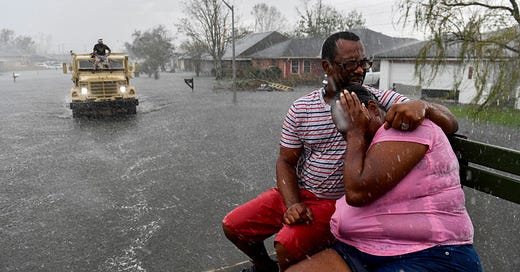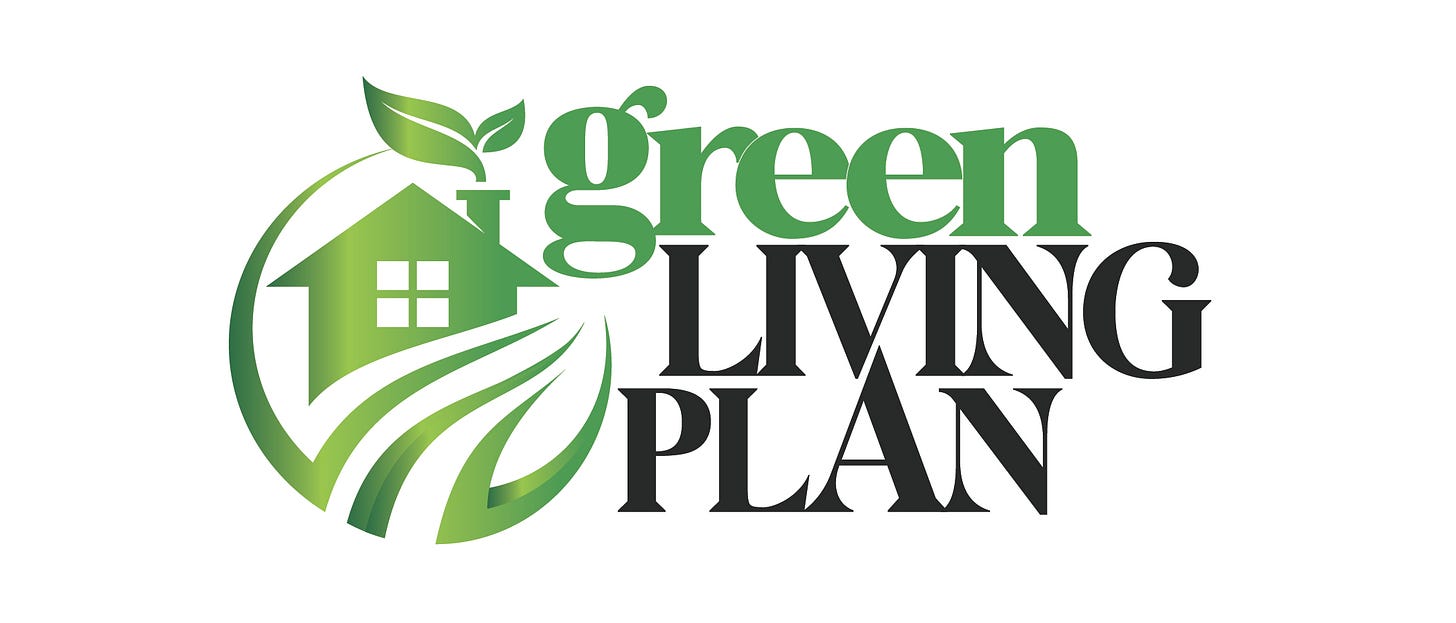Black Communities Are The Key To Climate Crisis Response (They Just Don't Know It Yet) ...
Black communities nationwide find themselves virtually defenseless on the front-lines of environmental catastrophe and existential threats such as climate crisis. Heat waves will be starting up again soon (if they haven’t already) and the flooding, especially what we’re seeing in the South, is getting much worse. Indeed, anything environmental easily tops the list as our No. 1 challenge. Against the backdrop of every problem we consider a uniquely — or disproportionately — Black problem, there is something gravely environmental triggering, aggravating or exacerbating them.
To date, Black people seem to always find themselves as the first warning signs of environmental and climate disasters. Our ancestors’ trans-Atlantic enslavement, the impetus of modern capitalism, is what caused and accelerated it, as Penn State University climatologist Gregory Jenkins reminds us. As a somewhat seminal 2017 joint NAACP and Clean Air Task Force report found, Black people “… are exposed to 38 percent more polluted air [than whites], and they are 75 percent more likely to live in fence-line communities.” Fence line means we’re more likely than everyone else to live next door to or near a toxic facility. That’s not even mentioning the disproportionate share of asthma, respiratory illnesses, cancers and other chronic diseases we face as a result.
But that growing collection of morbidities worsens daily with the aggravated trigger of the climate crisis. Dramatic changes in our physical environments — our air, land, water and indoor conditions — are now a leading cause of what’s making us sicker, which means it’s time we make it a leading driver of our social justice activism, how we vote and who we vote for.
The problem, however, is that most of us still don’t realize it, yet, or we’re not mobilizing as if we do.
As a HIT Strategies January 2022 polling of Black voters showed, “climate change and the environment” continued to show up near the bottom of the list of policy concerns. However, recent YouGov/Economist polling does show that Black respondents do consistently state that climate crisis is “very important” more so than other racial groups …
That’s still lower than where it was last year in the same YouGov/Economist polling now (shows Black voters more concerned about climate issues than any other group Clearly, that presents an opportunity — but, it’s not reflected in collective Black political discourse as the top issue that it is. The alarm bells aren’t ringing as they should.
Prioritization of environmental and climate crisis issues, and the response to Black suffering, still lags. There is much more reporting on it than before, but still not enough to break through into a major mass movement. The origins of this ignorance-by-design are not entirely our fault. Generally speaking, Americans don’t act or vote like the planet is on a disaster track: consumer vanity and climate catastrophe are, actually, on aligned fast tracks. Meanwhile, mainstream environmental movements segregate Black communities and advocates into the “environmental justice” section of the proverbial bookstore, with most “green” narratives hijacked by appeals to white sensitivities (it’s not like the U.N. is inviting us to the COP summit negotiating tables so, instead, we’re outside yelling … if we can afford to get there). National environmental campaigns regularly present images, places, and events geographically far removed from the daily concerns of Black populations in the United States. It’s not framed in a way that’s relevant to our daily stress, it’s not discussed in language that we can relate to and it’s not accessible.
Distressed Black neighborhoods sweating through climate crisis-instigated heatwaves in major cities like Philadelphia, Washington, D.C., Baltimore or Detroit — while struggling with high gun violence, food deserts, lack of health care access and the absence of basic amenities such as tree canopy and stable housing, are trying to stay cool and alive. The last thing on anyone’s mind is ice caps melting or deforestation in the Amazon rain forest — even if that’s a factor in making their living spaces hotter and violent or forcing their kids out of school early — or wildfires gobbling up forests in generally White exurban, rural and frontier enclaves. The enormity of the climate crisis won’t hit our community conversation hard until climatic events like a hurricane or Biblical flood hit and homes are destroyed, body counts rise and families find themselves completely displaced and unable to recover at all financially. Or until the water shortages out West cut Black folks’ water pipes off first, as DuBois Ashong’s realistic 2018 dystopian short film “Where the Water Runs” suggests.
But we’re just as responsible for not proactively raising this on our blocks as a top issue. Black media, with a few exceptions, is largely silent on environmental issues. Black pop culture discourse will still dismiss a climate conversation as “a White people’s thing.” The very influential and dominant “elite” Black celebrity-rapper-athlete-entertainment industrial complex is so self-absorbed by and chained to a relentless turntable of social media bragging rights, label obsession, reality shows and crypto-creeping neo-slavery, that our social squares seem completely oblivious to the collapse of the ecosystems around us … unless it becomes a trend. Tune in to the most highly rated Black talk radio, TV or streamed shows, open up a Black newspaper or major publication and most of the time, the climate crisis doesn’t exist. You won’t hear the Black church raising fingers about it in the pulpit. Black elected officials are gradually discussing it more, but the extent of that may depend greatly on how much sinister fossil fuel companies will allow it in some cases.
The only time climate and environmental destruction gets humanized or becomes a major political mission on the national stage is when it hits White populations or it becomes their problem and there is no way to ignore it. But, as Black Wall Street Times’ Ezekiel Walker recently notes, we’d never see Black residents from Jackson, Miss., or Flint, Mich., or “Cancer Alley” in Louisiana get the full panel treatment on CNN the same way white Midwestern residents (who regularly vote for anti-environment and climate denialist Republican officeholders) do.
No one should be surprised by persistent violent crime rates in not only systematically divested Black spaces, but Black spaces that are melting from an increase in global temperatures. No one should be surprised by spiked chronic disease and high Black maternal mortality rates when the air is toxic from pervasive particulate matter and while water is still largely contaminated by lead or school buildings are rife with asbestos. The spaces we live in are regularly under direct attack from a noxious confluence of environmental stressors. We could engage the counterattack and reverse those trends the sooner we center environmental protection and climate resilience as the key to our survival. Not only are we on the front lines of it, but we are positioned as the key voters for and leaders of a movement well primed to save the entire planet. We better move fast.





